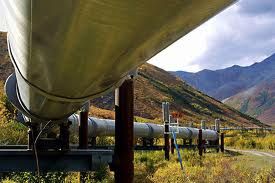
Asia fuel oil’s discount to crude narrowed, signaling reduced losses for refiners turning oil into residual products. Gasoil’s crack spread widened.
Fuel Oil
Fuel oil’s discount to Asian benchmark Dubai crude narrowed 31 cents to $8.95 a barrel at 11:30 a.m. Singapore time, according to PVM Oil Associates, a broker. On June 8, the difference was the biggest since May 13.
High-sulfur fuel oil swaps for August gained 50 cents to $667 a metric ton, PVM said. Prices climbed for a fourth day, the longest rising streak since May 27. The premium of 180- centistoke fuel oil to 380-centistoke grade rebounded 50 cents to $9.25. This viscosity spread last week narrowed 20 percent, the most this year, meaning bunker, or marine fuel, advanced more than higher-quality fuel oil.
Middle Distillates
The premium of gasoil, or diesel, to Dubai crude increased 55 cents to $18.93 a barrel, according to PVM. This crack spread, a measure of refining profit, was the widest since June 22.
August gasoil swaps rose 52 cents, or 0.4 percent, to $130.50 a barrel, the highest since June 15, PVM said. Jet fuel’s premium to gasoil was unchanged for a third day at $1.05. This regrade climbed 5 percent last week, indicating it was more profitable to make aviation fuel over diesel.
Light Distillates
Naphtha’s premium to London-traded Brent crude futures was up $4.67 at $97.92 a ton, according to data compiled by Bloomberg. This crack spread was the widest since June 24.
Japan’s open-specification naphtha forward contracts for second-half August delivery were bid at $982.50 a ton against offers at $985.50, according to Ginga Petroleum Singapore Pte, a broker. Prices rose every day last week to close at $984.75, the highest since June 1.
Gasoline’s premium to naphtha was at $18.50 a barrel on July 8, from $20 at the end of the previous week, based on Bloomberg calculations. A narrowing reforming margin shows motor fuel has become less profitable to produce.
Source: Bloomberg
We use cookies to improve your experience. By continuing to use our site, you accept our Cookies, Privacy Policy,Terms and Conditions. Close X